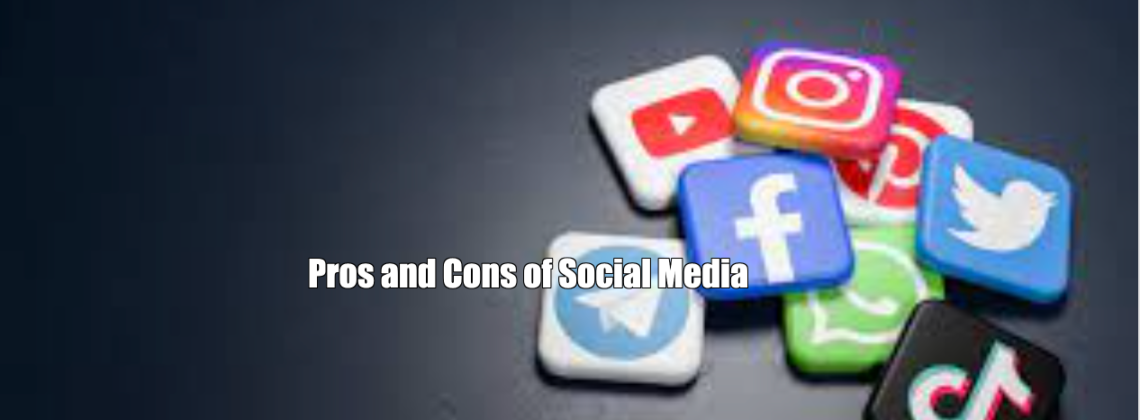
Social media encompasses a range of online platforms and applications designed to facilitate digital interaction, content sharing, and community building among users. It revolutionizes communication by enabling instant sharing of information, ideas, personal messages, and other content, including photos, videos, and links.
Platforms like Facebook, Instagram, Twitter, and LinkedIn cater to diverse needs, from personal networking and entertainment to professional development and brand marketing.
While social media offers numerous benefits, including enhanced connectivity and access to information, it also poses challenges such as privacy concerns, misinformation, and potential impacts on mental health. Its pervasive influence shapes public discourse, culture, and individual behavior in the digital age.
In today’s digital age, social media platforms have become ubiquitous, serving as a primary means of communication, information dissemination, and entertainment for billions around the globe.
With such a vast audience and varied functionalities, social media presents a complex web of advantages and disadvantages that impact individuals and societies in profound ways.
This article delves into the pros and cons of social media, exploring its benefits and drawbacks to provide a balanced view of its role in our lives.
Pros of Social Media:
1. Connectivity and Communication
One of the most significant benefits of social media is its ability to connect people regardless of geographical distances. Platforms like Facebook, Twitter, and Instagram enable users to maintain relationships with friends and family members around the world, fostering a sense of community and belonging. This connectivity is not just limited to personal relationships; it also extends to professional networking on sites like LinkedIn, where individuals can connect with industry peers, find job opportunities, and advance their careers.
2. Access to Information
Social media has revolutionized the way we access and consume information. With real-time updates, users can stay informed about global events, news, and trends within seconds. This instant access to information empowers individuals to be more aware and informed citizens. Additionally, social media platforms offer a vast repository of educational content, tutorials, and resources that can enhance learning and personal development.
3. Brand Promotion and Market Reach
For businesses, social media offers unparalleled advantages in brand promotion and market reach. Companies can engage with their audience directly, gather feedback, and tailor their marketing strategies to better meet customer needs. The viral nature of social media content also means that businesses have the potential to reach a global audience with minimal investment, leveling the playing field for small and medium-sized enterprises.
4. Social Support and Community Building
Social media platforms provide spaces for individuals with shared interests, struggles, or goals to find support and camaraderie. Online communities and forums can offer valuable resources and emotional support for those dealing with specific health issues, hobbies, or life challenges, contributing to a sense of belonging and community.
Cons of Social Media:
1. Privacy Concerns and Data Security
One of the most pressing drawbacks of social media is the issue of privacy and data security. Users often share a considerable amount of personal information on these platforms, making them vulnerable to data breaches and misuse. The collection and sale of personal data by social media companies pose significant risks to individual privacy and can lead to identity theft and other forms of cybercrime.
2. Misinformation and Fake News
The spread of misinformation and fake news is a significant disadvantage of social media. The speed at which information travels on these platforms can lead to the rapid dissemination of unverified or false news, contributing to misinformation, panic, and mistrust. The lack of effective mechanisms to verify the authenticity of information exacerbates this issue, undermining the credibility of social media as a reliable source of news.
3. Mental Health Issues
The impact of social media on mental health is a growing concern. Constant exposure to curated, idealized representations of others’ lives can lead to feelings of inadequacy, jealousy, and low self-esteem. Moreover, excessive social media use has been linked to anxiety, depression, and sleep disturbances, highlighting the need for individuals to manage their social media consumption mindfully.
4. Cyberbullying and Online Harassment
Social media platforms can also be arenas for cyberbullying and online harassment. The anonymity afforded by the internet can embolden individuals to engage in negative behaviors such as trolling, bullying, and harassment without immediate repercussions. This can have devastating effects on the mental health and well-being of victims, particularly young people and vulnerable individuals.
Conclusion
The pros and cons of social media paint a complex picture of its role in our lives. While it offers significant advantages such as enhanced connectivity, access to information, and opportunities for brand promotion, it also presents serious challenges, including privacy concerns, the spread of misinformation, mental health issues, and cyberbullying.
Navigating the benefits and drawbacks of social media requires a conscious effort to leverage its positive aspects while mitigating its negative impacts through responsible use, digital literacy, and robust privacy and security measures.
As we move forward in the digital era, it is imperative that individuals, communities, and policymakers work together to harness the potential of social media for good, ensuring it serves to enrich our lives and society rather than detract from them.

